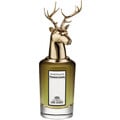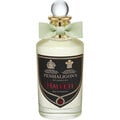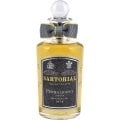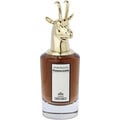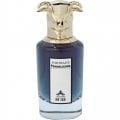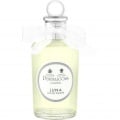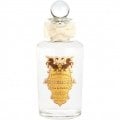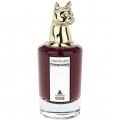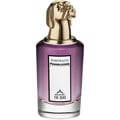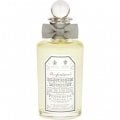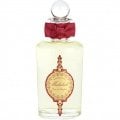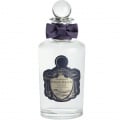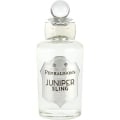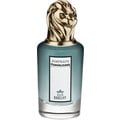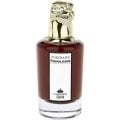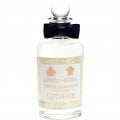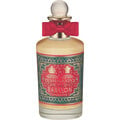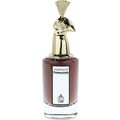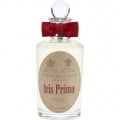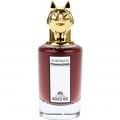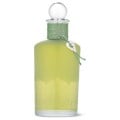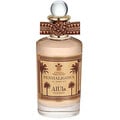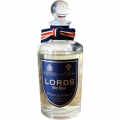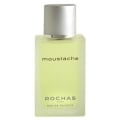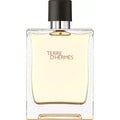08/10/2020

FvSpee
249 Reviews
Translated
Show original

FvSpee
Top Review
35
Neukölln 6: The British-Portuguese Friendship Perfume
Douro is not like Duro (from Nasomatto), the fragrance for hard men, named after the Italian and Spanish word for "hard", but after a river in the north of the Spanish peninsula. It is called Duero in Spanish and Douro in Portuguese and forms the border between the two states on a section of its course. In the Middle Ages it marked for centuries (along almost its entire length) the border between the Islamic Al-Andalus in the south and the Christian kingdoms, Asturias especially, in the north.
Douro is an Eau de Portugal (as it says on the label) and, as a co-parfumo explained to me, this is a special form of Eau de Cologne with a high percentage of oranges (or mandarins). Portugal from 4711 is one such, and many English fragrance companies carry or have carried such eaux. The fact that the Penhaligons decided to rename "Lords" to "Douro" when rebranding is very fitting and subtle in this respect.
Because traditionally, much connects England and Portugal, for example the English military aid for Portugal against Napoleon and the Portuguese military aid for England against Kaiser Wilhelm. But probably nothing connects the two nations as much as the port wine, a kind of national drink of the English, which is cellared in Portugal and whose grapes may be cultivated exclusively in the upper Douro valley, the wine-growing region Alto Douro (allegedly the oldest concretely defined and named wine-growing region in the world). It is said that the English port wine traditions go back to the 14th century, when the name port and also the wine growing region did not even exist.
In another sense, the name (and is also the designation as Eau de Portugal) is perhaps not quite as appropriate. Because this very beautiful fragrance has relatively little to do with an orange-laden cologne, i.e. a classic "EdPo". He is thus a little on the verge of this series, but he has its justification in it.
Douro starts - in this respect quite typical for colognes - with a fine citrus melange in which the mandarin is not so dominant. It is plausible that it is listed here on an equal footing with lime, lemon and bergamot; we have here a nice general citric in the best sense of the word, a blend so to speak. But from my point of view, especially at the beginning, the lavender is even more dominant, the Big Dipper in the starry sky above the Douro
Since this lavender-hesperide blend is also seasoned with a few spicy notes to match, the result is a light grey, finely fresh, somewhat understated finesse that is much more British than Iberian. This is more of a gentleman on southern journeys than a native Lusitanian.
If lavender continues, the fragrance then becomes soft next, almost meltingly soft, flowery-bloomy. It's not dandyish or effeminate, but it has something flattering and delicate, as if the gentleman forgets his stiff upper lip for a while and discovers his soft spot in the beauty of southern climes. The fragrance also becomes more orange in this phase, so I find Lily of the Valley and Neroli absolutely plausible for this phase (we are here about minute 30 to 60).
Afterwards, a very close, beautiful, noble, finely fresh finish that lingers for several hours, which is typical of the cologne, begins, which I no longer find citric. A good dose of oakmoss (or oakmossoxane or whatever you take today) is mixed with wood (I would have rather suspected cedar than sandalwood) and lavender, which seeps from the top note into the base.
Douro can be dosed generously, like a cologne, and is also happy to be plasticized. Applied too discreetly, it evaporates all too quickly and does not develop its effect.
All in all: this is complexity and sophistication that is only seemingly simple and plain, which is why this little water clearly stands out beyond the boundaries of a classic cologne. To reward this, I was inclined to give 9 points (which would be anything but absurd!), but since the fragrance, for all its beauty, does not trigger the feelings of infatuation associated with a 9 already, it gets stuck somewhere at 8.74.
Still a great scent!
Like Duro, by the way.
Douro is an Eau de Portugal (as it says on the label) and, as a co-parfumo explained to me, this is a special form of Eau de Cologne with a high percentage of oranges (or mandarins). Portugal from 4711 is one such, and many English fragrance companies carry or have carried such eaux. The fact that the Penhaligons decided to rename "Lords" to "Douro" when rebranding is very fitting and subtle in this respect.
Because traditionally, much connects England and Portugal, for example the English military aid for Portugal against Napoleon and the Portuguese military aid for England against Kaiser Wilhelm. But probably nothing connects the two nations as much as the port wine, a kind of national drink of the English, which is cellared in Portugal and whose grapes may be cultivated exclusively in the upper Douro valley, the wine-growing region Alto Douro (allegedly the oldest concretely defined and named wine-growing region in the world). It is said that the English port wine traditions go back to the 14th century, when the name port and also the wine growing region did not even exist.
In another sense, the name (and is also the designation as Eau de Portugal) is perhaps not quite as appropriate. Because this very beautiful fragrance has relatively little to do with an orange-laden cologne, i.e. a classic "EdPo". He is thus a little on the verge of this series, but he has its justification in it.
Douro starts - in this respect quite typical for colognes - with a fine citrus melange in which the mandarin is not so dominant. It is plausible that it is listed here on an equal footing with lime, lemon and bergamot; we have here a nice general citric in the best sense of the word, a blend so to speak. But from my point of view, especially at the beginning, the lavender is even more dominant, the Big Dipper in the starry sky above the Douro
Since this lavender-hesperide blend is also seasoned with a few spicy notes to match, the result is a light grey, finely fresh, somewhat understated finesse that is much more British than Iberian. This is more of a gentleman on southern journeys than a native Lusitanian.
If lavender continues, the fragrance then becomes soft next, almost meltingly soft, flowery-bloomy. It's not dandyish or effeminate, but it has something flattering and delicate, as if the gentleman forgets his stiff upper lip for a while and discovers his soft spot in the beauty of southern climes. The fragrance also becomes more orange in this phase, so I find Lily of the Valley and Neroli absolutely plausible for this phase (we are here about minute 30 to 60).
Afterwards, a very close, beautiful, noble, finely fresh finish that lingers for several hours, which is typical of the cologne, begins, which I no longer find citric. A good dose of oakmoss (or oakmossoxane or whatever you take today) is mixed with wood (I would have rather suspected cedar than sandalwood) and lavender, which seeps from the top note into the base.
Douro can be dosed generously, like a cologne, and is also happy to be plasticized. Applied too discreetly, it evaporates all too quickly and does not develop its effect.
All in all: this is complexity and sophistication that is only seemingly simple and plain, which is why this little water clearly stands out beyond the boundaries of a classic cologne. To reward this, I was inclined to give 9 points (which would be anything but absurd!), but since the fragrance, for all its beauty, does not trigger the feelings of infatuation associated with a 9 already, it gets stuck somewhere at 8.74.
Still a great scent!
Like Duro, by the way.
23 Comments

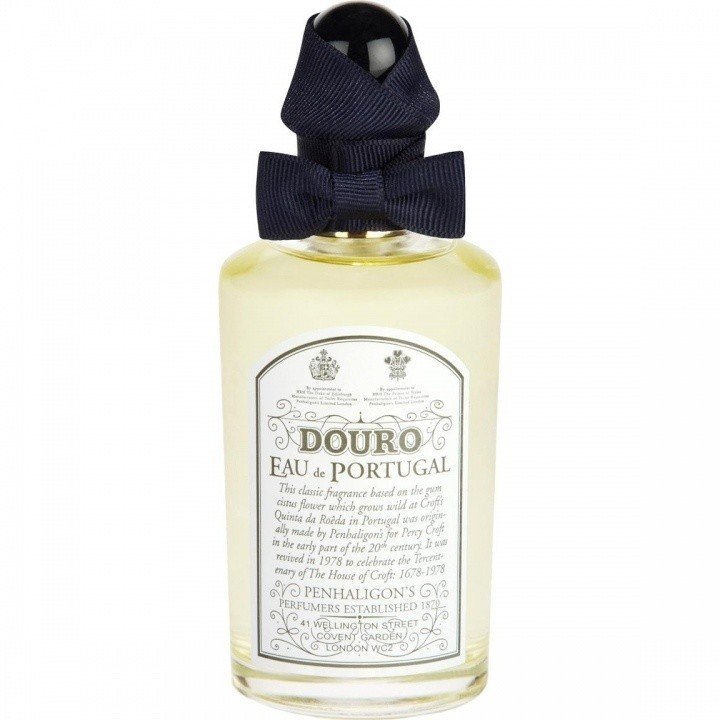


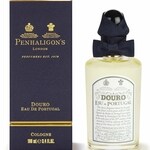
 Top Notes
Top Notes 






 Heart Notes
Heart Notes 

 Base Notes
Base Notes 









 BertolucciK
BertolucciK